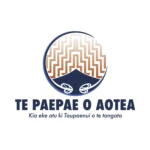Culturally Inclusive
Knowing and respecting all students and their culture (beliefs and behaviours) is important to us. We use our name and our whakatauākī to teach our local history. Local Tikanga and Te Reo are integrated across the curriculum. Respectful citizens are key members in our community.
Personalised Learning Journey
Students at Te Paepae o Aotea have an Individual Learning Programme. Students frequently plan, track and review their journal, alongside their teachers and whānau.
Social, Physical and Emotional Curriculum
A family-like context underpins everything we do at Te Paepae o Aotea. Students are guided through a learning programme that supports their hauora/wellbeing. Students will become independent and resilient. Physical wellbeing through sport and regular activity promotes achievement. Restorative practices are used to build and maintain positive, respectful relationships across our school.
Authentic Connections
Relationships are vital for both the academic achievement and the wellbeing of all our students. Reducing transitions allow students, whānau and teachers to build authentic relationships. Teachers develop a deep understanding of students and their learning and this is documented in their ILP (Individual Learning Programmes).
Future-focused Curriculum
Students become lifelong learners who demonstrate the following key competencies: thinking, relating to others, using language, symbols and texts, managing self and participating and contributing. Students plan their learning programmes and have choice. Students are encouraged to investigate areas of interest - this encourages innovation and growth mindsets.
Expert Teaching
Students cover the full curriculum. Specialist teachers deliver the learning and access to labs/spaces are available. Research and professional development promote best practice teaching.
Community Contribution
All students are expected to get involved in extracurricular activities within the school or in the community through sport, culture and/or the arts. In the Junior School, students will complete at least one community project each year. Students will link their Community Contribution project to a minimum of three curriculum areas e.g, math, science, technology.
Striving For Excellence
Excellence and personal achievements are celebrated and shared with the learning community. Each term, Celebration Days welcome whānau into classes to share the learning journey.



